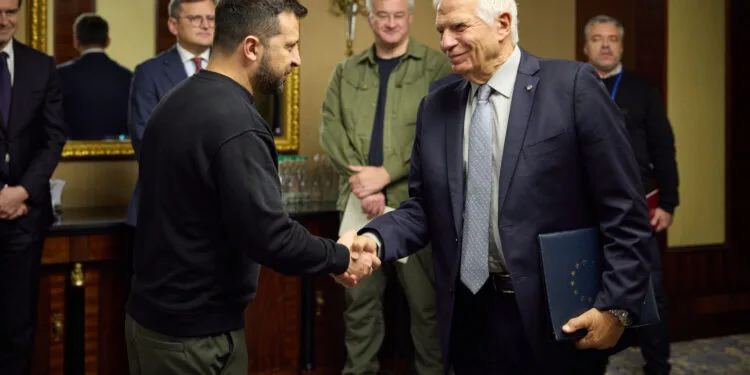Brussels – There seems to be no ambiguity in the European Union’s position on the Ukrainian incursion into the Russian Kursk region, which has already entered its third week. As Kyiv troops continue to advance into Russian territory, from Brussels comes full support for the surprise attack orchestrated by Ukraine. To the point that High Representative Josep Borrell suggested that NATO partners “lift restrictions” still preventing the Ukrainian army from using Western weapons systems to strike directly enemy soil.
In a post on X, the EU diplomacy chief called the Ukrainian operation in the Kursk “a severe blow to Russian President Putin’s narrative” that the conflict is going in the direction envisioned by the Kremlin. On the contrary, according to Borrell, the ongoing cross-border offensive strengthens Ukraine, which stands to gain in eventual negotiations.
“Lifting restrictions on the use of capabilities (provided by the West to Ukraine, Ed.) versus the Russian military involved in aggression of Ukraine, in accordance with international law, would have several important effects,” according to the High Representative. “Strengthen Ukrainian self-defense,” for example, by depriving Russia of bases from which it launches attacks against cities and infrastructure, “save lives” (of Ukrainian civilians, of course) and “help to advance peace efforts.”
Borrell’s comments seem directed primarily at Western chancelleries that have not yet allowed Kyiv to use the weapons they supplied directly on Russian territory due to fears of an escalation of the conflict. For example, London recently clarified that the equipment it sent to Ukraine is for defense, not offensive. On the other hand, for now, Germany, Canada, Czechia, Denmark, and Sweden have allowed Ukraine the use of their weapons within Russian borders.
As the High Representative’s spokesman, Peter Stano, reiterated to Eunews, the transfer of weapons and war material and equipment to Ukraine is a matter of bilateral agreements between Kyiv and the supplier states. Not to be overwhelmed by Russian aggression, the former Soviet republic “needs to defend itself in the best and most effective way possible, and the High Representative thinks this would be possible by lifting restrictions on the use of weapons provided by the West to fight the enemy,” he said.
Nothing has changed since Stano earlier this month underlined that “Ukraine has the right to strike the enemy wherever necessary on its territory, but also in the enemy’s territory,” referring to the Kursk incursion, which had begun a few days earlier. So far, crossing Moscow’s “red lines” has not led to a sharp increase in the intensity of the conflict (e.g., through the dreaded use of tactical nuclear devices), which has led Ukrainian President Volodymyr Zelensky to speak of a “bluff” by his Russian counterpart Vladimir Putin.
English version by the Translation Service of Withub




